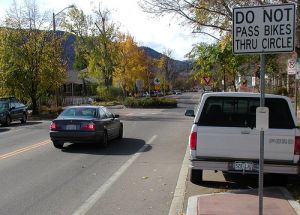[ad_1]
Unlike other forms of pollution, which often prompt visible effects, noise pollution is invisible and thus less noticeable. Still, the harmful effects are very real, including hearing loss. Here’s an overview of noise pollution, what it does and how you can protect yourself:
What is noise pollution?
While sound occurs due to changes in air pressure that cause our inner ears to vibrate and produces the auditory sensations we interpret as sound, we call sounds that are bothersome or undesired “noise.” When there is so much consistent noise that it causes negative emotional and physical effects in humans and animals, it is referred to as noise pollution. While we are always surrounded by sound, most of us aren’t constantly surrounded by noise. Here are some examples of common noise pollutants:
 Construction sites: This is the most obvious example when most people think of noise pollution because we’ve all lived near or walked past a very loud construction site, which rely on heavy equipment like cranes, cement mixers, pay loaders and jack hammers, which produce constant noise.
Construction sites: This is the most obvious example when most people think of noise pollution because we’ve all lived near or walked past a very loud construction site, which rely on heavy equipment like cranes, cement mixers, pay loaders and jack hammers, which produce constant noise.- Large events: House parties, concerts, clubs and other similar venues and situations are fun for visitors but not so fun for people in surrounding neighborhoods who have to listen to constant noise, especially when these events feature loud speakers.
- Traffic: Transportation is pervasive, especially in large and crowded cities. People who live near highways are often affected by the noise pollution, which includes car engines, horns and loud music, along with the general whir of passing traffic.
- Airport traffic: People who live very close to airports often deal with noise pollution from incoming and outbound planes. Likewise, individuals and families residing near train tracks also deal with horns and heavy cars on a daily (and even hourly) basis.
- Industrial machinery: The furnaces, compressors, generators and cranes at industrial sites are mostly harmful to those working at plants or factories.
Why is noise pollution harmful?
Noise pollution has been shown to cause stress, cardiovascular disease, sleep disturbance, cognitive impairment and tinnitus, making it unpleasant and also dangerous. Additionally, recent research shows that noise pollution disrupts and damages the ecosystem and the precious plants and animals that live in it, which in turn affects our health. For example, birds called scrub jays, which disperse pine tree seeds, avoid noisy areas, research has shown.
What can you do to protect yourself?
Matters of noise pollution are generally solved at the state and local levels after the dissolution of the Environmental Protection Agency’s Office of Noise Abatement and Control (ONAC), which previously studied and investigated the effects of noise on public health. The EPA still regulates some sources of noise under The Noise Control Act of 1972 and The Quiet Communities Act of 1978.
Of 111.8 million households in the 2009 American Housing Survey, 25.4 million of them – about 23 percent – reported being bothered by heavy traffic or street noise. People today can deal with noise pollution in these ways:
- Wear high-quality, heavy duty foam earplugs and noise-cancelling headphones whenever you need some quiet or are in a noise-polluted area.
- Do your part to minimize noise pollution by keeping your car functioning properly, making sure your dog isn’t barking loudly in the neighborhood and not talking on the phone in public spaces when it’s unnecessary.
[ad_2]
Source link

